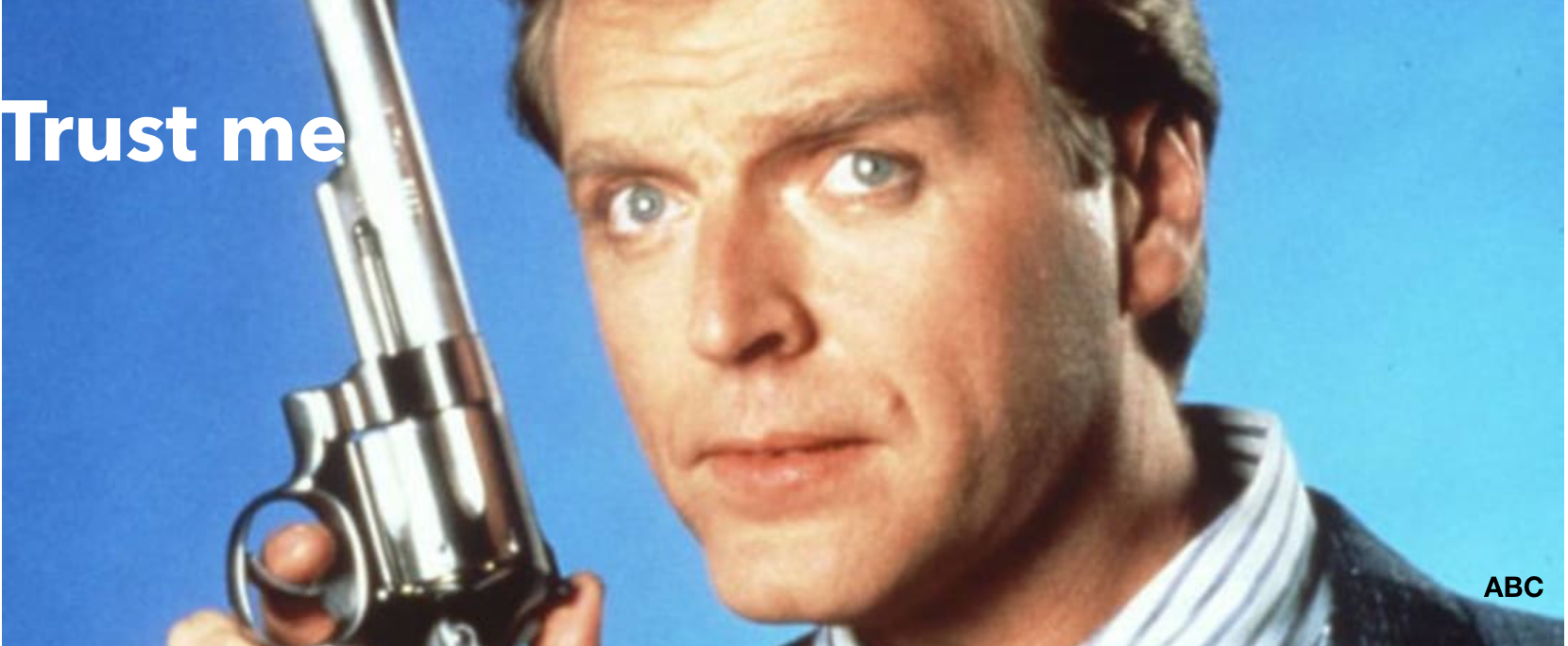“Hey, trust me, I know what I am doing.”
…
“Haammmer!”
If you recognize those lines, then you definitely remember the series Sledge Hammer that originally ran during the mid 80s. When Sledge Hammer, played by David Rasche, said that line, you knew that things were going to get ugly, and that Hammer would completely mess up… thankfully for us, it was all just television.
In real life and in business, trust is the single most important element that enables high performance.

Do you remember when you learned to ride a bike? That moment when they removed your 2 side wheels? You trusted your parents you would do just fine, … (in my case, let’s forget my overenthusiastic braking skills that made me tumble over my front wheel that first time). All top cyclists started this way: trusting their parents and environment, and their newly gained skills, to know how to ride a bike, and then later to perform on a top level.
Similarly, do you remember those first splashes in the water? When you learned to swim, you trusted that you would be able to swim without any help, and so did the people who taught you, and who encouraged you. Michael Phelps, who won an astonishing 28 Olympic medals, started just the same way like you!
Trust helps people to learn new skills, and more, it helps them to push beyond their Self-Imposed-Limits (yes, SILs are silly, never forget this!).
In the brilliant book the Trillion Dollar Coach, written by, among others, Google’s Eric Schmidt, they describe the methods of the legendary coach Bill Campbell, and for him, trust is the first thing to create if you want a relationship to be successful. It is the foundation.
In an environment of trust, you can be yourself and fulfil your potential. You can grow.
& add Transparency
It will be clear by now that trust is very closely related to transparency and safety. A study back in 2006 proved that more transparency resulted into more trust.
Transparency leads to clarity to questions like: what are the goals, why do I give that type of feedback, and what do we want to achieve?
And this is quite logical: How can you coach people if you are not transparent? Feedback is a crucial element. If there is no transparency, then there is no trust, and as such a limited feedback.
And the safety ensures that it is safe to fail, but also safe to learn. You are allowed to practice and enhance your skills, and this implies that you are allowed to make mistakes and learn from them.
& give Feedback
Feedback in such environment is genuine and constructive with the goal to improve the person who receives the feedback, the person giving the feedback, as well as the organisation as a whole.
For example, when we work in so-called boiler rooms, we drill ourselves to improve certain skills. Everybody gets a few minutes to train a skill, and then the entire team describes elements that went well, and elements that could be done differently. The next person performing the exercise, immediately includes the feedback into his, or her, session, resulting in a better performance.
Everybody learns from each other and builds upon the feedback and previous sessions.
So… do you trust me enough to try building trust in your organisation? Let me know how it goes!
